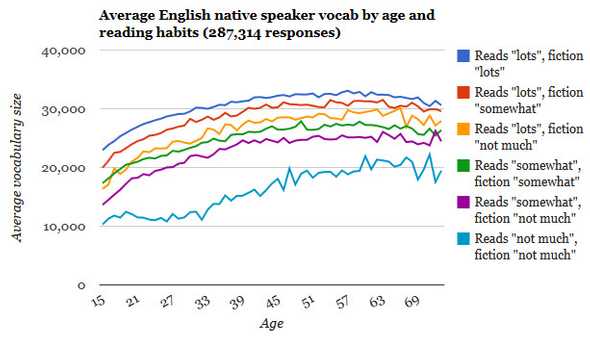Word Vector Series: Part 2 - Downloading the model
July 21, 2017
Intro to Part 2
In part 2, we’ll be downloading the model and trimming it to a reasonable size.
Downloading the model
Download GoogleNews-vectors-negative300.bin.gz from either code.google.com (requires a browser, ctrl-f negative300) or this github archive (requires git-lfs).
Unzip the file with gzip. It’s quite large and in a binary format made for a python library called word2vec. I’d like to make the service in nodejs, so let’s convert it to text. We can use a program called convertvec to do this. An actual command list looks something like:
$ git clone [email protected]:marekrei/convertvec.git
$ cd convertvec
$ make
$ cp convertvec ../cv
$ cd ..
$ chmod +x cv
$ ./cv bin2txt GoogleNews-vectors-negative300.bin GoogleNews-vectors-negative300.txt
$ rm -rf convertvecNow you should have GoogleNews-vectors-negative300.txt. It’s huge - 8 gigs - and contains 3 million lines (words).
The format looks like this:
in 0.070312 0.086914 0.087891 0.062500 0.069336 -0.108887 -0.081543 -0.154297 0.020752 0.131836 -0.113770 -0.037354 0.069336 0.078125 -0.103027 -0.097656 0.044189 0.102539 -0.060791 -0.036133 -0.045410 0.047363 -0.120605 -0.063965 0.002258 0.037109 -0.002914 0.117676 0.061768 0.063965 0.081055 -0.068848 -0.021362 0.055176 -0.085449 0.068848 -0.127930 -0.033203 0.098633 0.175781 0.110840 -0.034668 -0.047119 -0.008484 0.035889 0.103027 0.026978 -0.028687 -0.005127 0.106445 0.059814 0.094238 0.033691 -0.027100 -0.094238 0.001030 -0.048340 0.034424 0.081055 -0.113281 -0.088867 0.035889 -0.145508 -0.244141 -0.061523 0.052979 0.056885 0.179688 0.061035 0.086914 0.124023 -0.040283 0.022583 0.177734 -0.029663 -0.029663 0.117188 0.031128 -0.096191 0.066406 0.004700 -0.080078 0.062988 -0.020630 -0.054688 -0.135742 -0.063477 0.083496 -0.063965 0.021484 0.077148 -0.037109 -0.033691 -0.183594 -0.072754 0.015869 0.093262 -0.061523 -0.014221 -0.003448 0.011108 -0.158203 -0.017090 0.006195 -0.008728 -0.080566 -0.015259 -0.087891 0.003479 -0.016113 -0.012329 0.097656 -0.139648 -0.085938 -0.026855 0.053955 0.132812 0.112793 0.121094 0.085449 -0.007111 0.044678 -0.145508 -0.003204 -0.117676 -0.065430 0.071289 -0.094238 -0.030273 0.120117 0.080078 -0.094727 -0.162109 -0.077637 0.021240 -0.081543 0.003937 -0.157227 -0.098145 0.039795 0.039307 -0.009094 0.103027 0.067871 -0.042725 0.063477 -0.049072 0.020874 -0.166992 0.093262 0.093750 0.006866 0.053711 0.052490 -0.024414 -0.032471 -0.061523 -0.005554 0.096191 0.037842 0.012207 -0.043945 -0.007477 0.105469 0.020386 0.145508 0.082031 0.005768 0.004578 -0.092773 -0.138672 -0.057373 -0.051514 -0.130859 -0.139648 -0.020508 -0.027100 0.032715 0.104980 -0.002335 -0.022583 0.000504 -0.110840 0.084961 -0.129883 -0.017456 -0.000359 0.107910 0.088867 0.044678 0.025146 0.023804 0.081055 0.023682 -0.109863 0.005371 -0.017700 -0.033936 -0.032959 -0.164062 0.095703 -0.018311 0.005310 -0.034424 -0.044189 -0.066406 -0.017944 -0.029663 -0.007599 -0.051270 -0.054199 0.089355 -0.071777 0.015259 -0.082520 -0.031738 0.035645 -0.021240 -0.059326 -0.013062 0.046875 0.023071 0.020996 -0.078613 -0.008057 0.019531 -0.005554 0.041504 0.027832 0.013611 0.034668 -0.182617 0.120117 0.074219 -0.041016 -0.009949 0.042969 -0.007294 0.123047 0.057617 -0.053467 -0.032227 -0.009094 -0.046631 0.043945 -0.050781 0.068848 0.002991 -0.004181 -0.044189 0.073730 -0.012756 0.067383 0.006287 0.075195 -0.037842 0.004883 0.044678 -0.067383 0.009705 0.004730 0.020508 0.071289 0.170898 0.173828 0.055664 0.091309 -0.037354 0.049805 -0.039307 0.044189 0.062500 0.048584 -0.053223 0.048828 -0.130859 -0.028931 -0.036133 -0.060791 -0.057373 0.123047 -0.082520 -0.011902 0.125000 0.001358 0.063965 -0.106445 -0.143555 -0.042236 0.024048 -0.168945 -0.088867 -0.080566 0.064941 0.061279 -0.047363 -0.058838 -0.047607 0.014465 -0.062500 I’d like to make a simple service that has a smallish resource footprint, so let’s not load the whole thing.
The words at sorted by popularity. At the top of the file we have </s>, in, for, and that;
at the bottom, we have Mezze_Cafe, pulverizes_boulders, and snowcapped_Caucasus.
Some things to notice: The model uses capital letters sometimes, it contains compound phrases separated by
underscores, and there are some special codes. Our implementation will only look up single words for simplicity, but
we need to make sure to take care of capitalization: the user could type monday but the model only contains Monday.
Trimming the model
So let’s cut off a section of the top of the file and convert it to a javascript object. I wrote a quick ruby program to do this (it won’t win any awards!):
#!env ruby
require 'json'
input_array = ARGV
if input_array.length < 1
puts "#{$0}: How many words should I include in the model?"
puts "Use \"./#{$0} 10000\" to make a 10,000 word model."
exit
end
limit = ARGV.shift
if !(limit =~ /\A\d+\Z/)
puts "#{$0}: Please provide a limit in numbers."
puts "Use \"./#{$0} 10000\" to make a 10,000 word model."
exit
end
limit = limit.to_i
puts "module.exports = {"
words_seen = {}
output_index = 0
File.open("./GoogleNews-vectors-negative300.txt", "r") do |file|
file.each_with_index do |line, input_index|
next if input_index == 0
line_array = line.split
word = line_array.shift.downcase
next if words_seen.key?(word)
words_seen[word] = 1
vectorPart = line_array.join(", ")
puts "#{JSON.generate(word)}: [#{vectorPart}],"
output_index += 1
break if output_index >= limit
end
end
puts "};"Use it like so: $ ./make_model.rb 25000 > ../words25k.js
A 25k word model is about 75 megabytes, and includes a reasonable number of words. Here’s a graph showing estimated vocabulary size for English native speakers from testyourvocab.com:
Up next
In part 3, we’ll be using some basic linear algebra to find related words.
